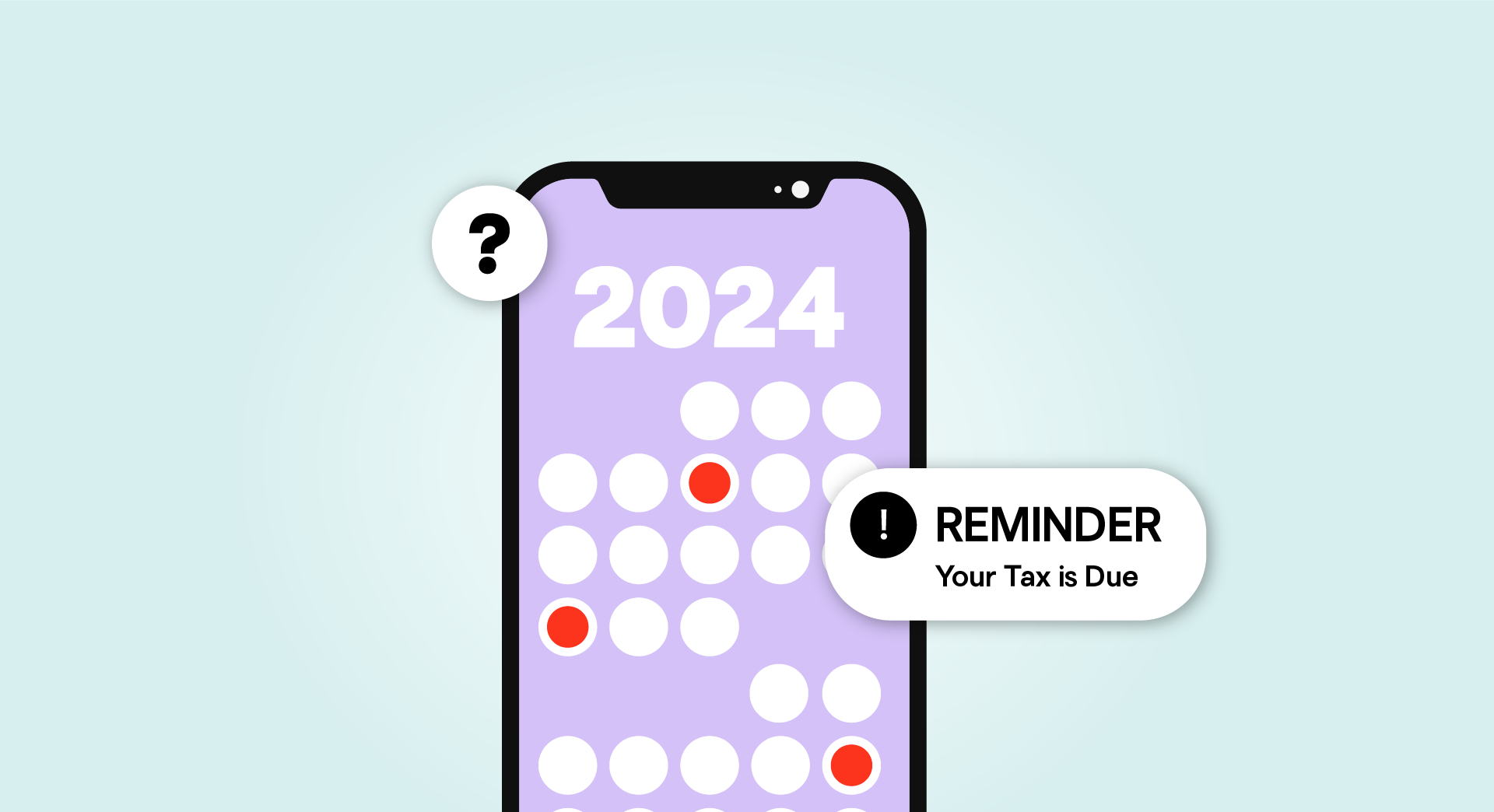You’ve worked hard at perfecting your service or product. You know your target market like your face in the mirror. You’ve chosen your business name. You’re ready to fly as an entrepreneur and are poised on the cusp of great things.
Before you build a website and print your business cards, you’ll need to choose the business structure your business will operate under.
What’s a business structure, you ask? Think of it as the legal foundation of your business. It will define how you trade, report your tax, the tax advantages you’ll have access to, how profits and losses are shared or distributed, legal and superannuation obligations, hire staff — even how you prepare your invoices.
There are four main business structures: sole trader, company, partnership or trust.
Of the four business structures, a sole trader and company are the most popular. Which one is best for you?
Pro tax tip: Your choice isn’t set in stone. You can always change your business structure as you grow.
Sole trader
A sole trader business structure is the simplest and the cheapest to set up.

The owner has all of the decision-making power so you can set your own direction.
You’ll personally be legally responsible for all aspects of your businesses services and products, debts or losses, Pay-As-You-Go (PAYG) and superannuation obligations to staff.
Pro tax tip: As a sole trader, you will be able to claim a tax deduction for any personal superannuation contributions you make on your tax return.
You’ll be able to use your individual Tax File Number (TFN) to lodge your individual tax return.
We recommend that you open a separate bank account to operate under, so your business finances are separate to your personal account. This will make things a little easier to keep track of.
Pro tax tip: It’s a great idea to open a separate account for your tax. As a sole trader, you’ll need to set aside your tax obligations. Setting money aside into a separate bank account throughout the year makes it less stressful when you have to meet your tax obligations. The money will already be there ready to go!
Risks of sole trading
Running a business as a sole trader does have some risks. As a business owner, you have unlimited liability if something goes wrong.
That means you’re responsible for purchases, losses or potential lawsuits.
You’re the full stop when it comes to paying your expenses, liabilities and obligations. It pays to make sure you have the proper insurances that will protect your business from events that cause disruption to your business.

How to become a sole trader
If becoming a sole trader sounds like your jam, then it’s full steam-ahead with choosing your business name. Your business name is an important part of your business's identity, so it might pay to spend some time and reflection with this important stage.
You might have your business name for a while, so check that your business name is:
- Easy to say, spell and recall
- Memorable
- Original and not too similar to your competition or large trading names
- Non-offensive
- Short
- Representative of your business
If you want to use your own name to trade, you won’t have to register it. But if you want to call your business Mark Smith & Co, you’ll need to register the ‘& Co,’ as that is not a part of your personal name.
Naming restrictions
There are some restrictions on names and words that can be used. Check the Australian Securities and Investments Commission (ASIC) website for these.
Pro tax tip: To make sure that your business name is free and unique to you and doesn’t infringe on trademarks, check your proposed business name at IP Australia.
If your business name is clear and free, make sure you register. You’ll need an Australian Business Number (ABN) to register a business name. If you haven’t got an ABN, relax.
You can apply for an ABN and register your business name at the same time through the Australian Government's Business Registration Service.
When you apply, just click the option as a sole trader.
Pro tax tip: Registering a business name does not give you exclusive rights. If you want to make sure nobody can steal your business name, you can trademark your business name, or operate under a company structure.

Tax registrations
Don’t forget, a key feature of becoming a sole trader is using your individual Tax File Number (TFN). When it’s time to lodge your tax return for your business, you’ll use your TFN.
Obtaining an ABN will allow your customers to pay you in full. You’ll need an ABN to register for the Goods and Services Tax (GST). Find out if you need to register for GST here.
Pro tax tip: If you don’t obtain an ABN, your clients are obligated to withhold 47% tax of their payments to your business.
Goods and Services Tax (GST)
Once your business earns over $75,000 per annum (go you!), you’ll need to register for GST. This means that you’ll be obligated to charge an extra 10% on your invoice for the goods and services you sell, as well as collect the GST you are charged.
Claiming the GST can in fact be beneficial.
You’ll be able claim back GST credits when you lodge your Business Activity Statement (BAS) and reduce your GST liability.
All you need to do is add up your GST credits and debits separately, subtract the debits from the credits and either pay or receive a refund of the difference when you lodge your BAS with the ATO.
Pro tax tip: If you’re unsure of how to organise your BAS, reach out for some bookkeeping help. As a business owner, you’ll already be pretty busy. Not only will you get the expert help you need, you’ll free up your time to work on your business.
Company
A company is a business structure that has shareholders who own the business and directors who run it. You don’t need a board to operate a company. You can set up a one-person structure with a sole trader and member.
Pro tax tip: Companies can be listed. That means that part of the business can be sold as shares and used as investments in the company.
A company is a separate legal entity. Unlike a sole trader, a company controls businesses assets, losses and manages the day-to-day decision-making and running. The business is seen as having the same legal rights as a person and can be in debt, can sue or can be sued.
Operating your business under a company business structure is more expensive and complicated, but it takes the liability off you as a business owner.
There are three classifications of companies:
Companies on the basis of liabilities. These companies are limited by share quantity and value of shares. This is suited for most trading businesses.
Companies on the basis of members. This can be anything from one-person companies to private or public companies.
Companies on the basis of control. These are holding and subsidiary companies, associate companies.
If you opt for a company structure, you must include the word ‘Proprietary’ or ‘Pty’ in your company name to indicate the legal status. “Limited’ or ‘Ltd’ will also need to be included if your company is a limited liability company.
Pro tax tip: Because your company is seen as a separate legal entity, you’ll need to apply for a TFN for your business.
 Business name
Business name
Because of its separate legal status, your company has exclusive rights to a business name in Australia. This means that another business or entity can’t steal or use your business name after you register that name. Note that you can trade under a different company name than that of your business name.
Pro tax tip: ASIC will provide your company an Australian Company Number (ACN). This is a nine-digit number that identifies a transacting business. You must legally display your ACN on a range of legal documents including:
- Invoices
- Official company notices
- Cheques
- Business letterheads
If your company already has an ABN, you can use your ABN in place of the ACN as long as your ABN includes the 9-digit ACN. It must also be used in the same way as your CAN — that is, displayed on legal business documentation.
Pro tax tip: Your company’s business letterhead is a legal business document under a company business structure.
Tax implications of a company
Similar to that of a sole trader business structure, when your company turns over $75,000 per annum, you’ll need to register and collect the GST as well as company tax.
A company will be obligated to pay income tax, just the same as an individual, and will be required to lodge its own tax return. This tax is paid to the ATO quarterly.
The general rate of company tax is 30% however, some companies will qualify for a 25% tax rate.
As an employee or director of your company, you will then be obligated to pay individual income tax based on the wage you draw from your company.
If you employ staff or hire contractors, you’ll need to be aware of your PAYG and super obligations, as well as paying Fringe Benefits Tax (FBT) and Capital Gains Tax (CGT).
Pro tax tip: If your business employs its own staff, it will need to set aside the minimal super guarantee and pay each worker, which is 10% as of 1 July 2021.
Conclusion
Still not sure which is right for you? Business Victoria has a step-by-step structure guide that asks leading question to help you decide.
No business structure is set in stone.
You may start out as a sole trader, then decide to level up and change to become a company once you hit a certain earning or employment level. A company can also drop back to sole trader status.
Before you make the ultimate decision, it’s best to seek professional advice. A professional will be able to guide you through the decision-making process and help you legally set up your sole tradership or company. There’s no need it go it alone.
For educational purposes only, consult with your local tax professional.






